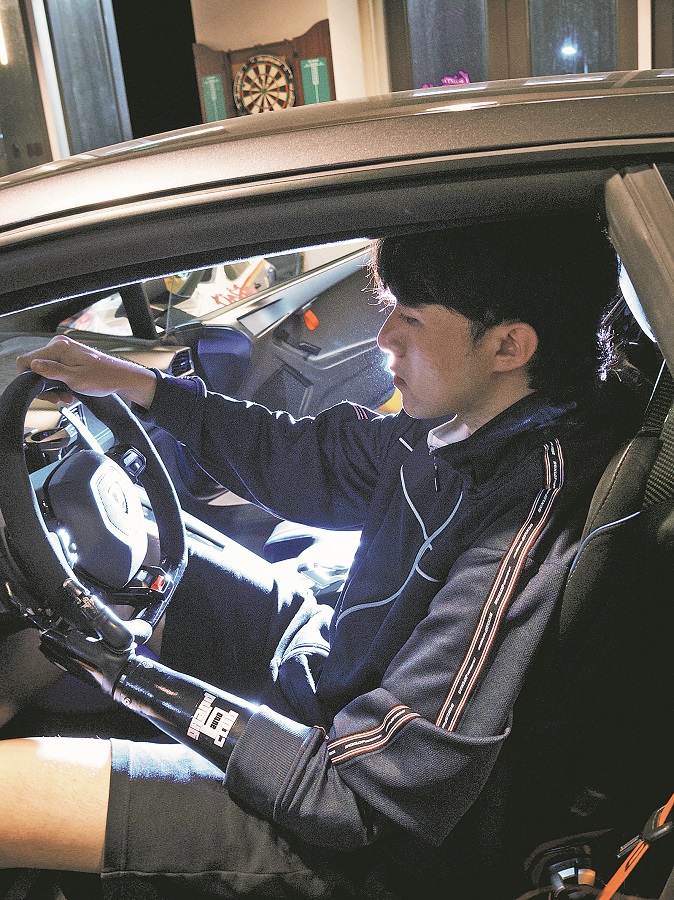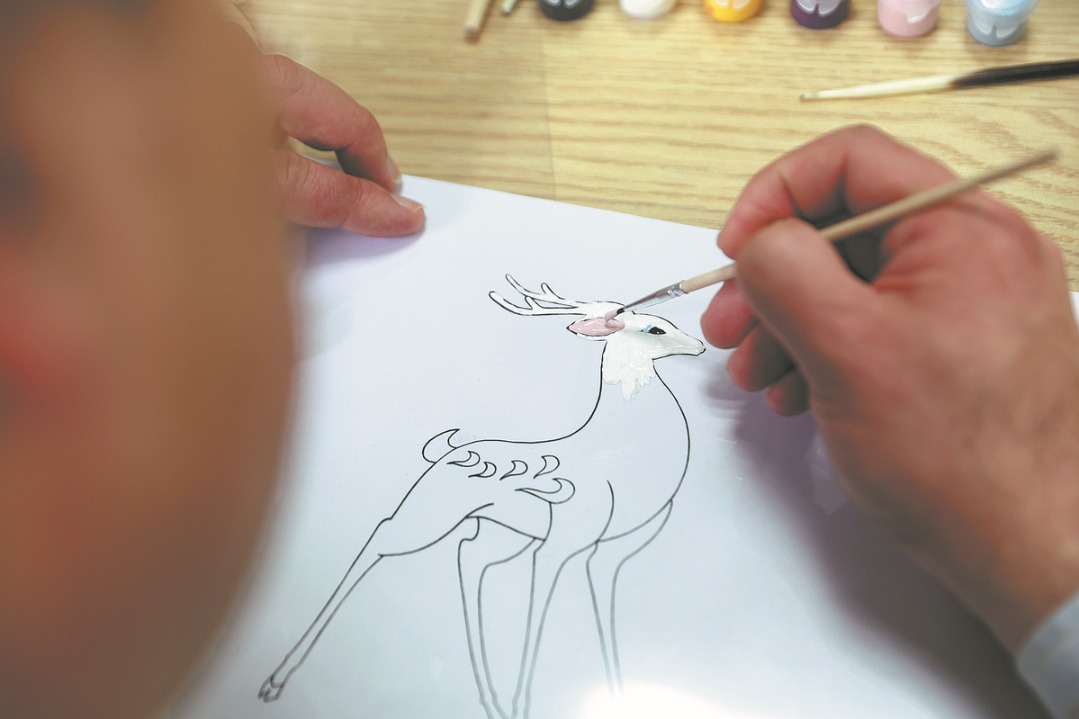Flesh embraces steel in new age of prosthetics aesthetics
Rise of 'cyberpunk' artificial limbs challenges society's perceptions of disability


Rise of 'neo-people'
The growing trend of cyberpunk prosthetics receiving exposure on social media is cultivating a new narrative about disabilities, said Zhang Wei, a medical sociology scholar at Renmin University of China. This narrative goes beyond a "disease-centric" focus and empowers disabled communities.
Zhang said showcasing artificial limbs online serves two purposes. It creates strong in-group identity through digital diaries of daily life, while social media comment sections become a community hub for group members to help each other by sharing life experiences and offering support. This public visibility breaks down social barriers by amplifying voices to attract policymakers and charities.
"Both disability and the cyberpunk aesthetic represent just one facet," Zhang said. "We need to recognize their need for a fitting, self-defined social identity."
Academics have proposed terms like "neo-people" for those embracing new bodies and capabilities through technology, she added.
Prosthetic designers, stylists, and even runway models are carving out careers in an industry once dominated by medical necessity.
"It's not my flaw; it's my armor," said Weng Youyou, 30, the owner of a clothing factory, who lost her left leg and arm in a car accident in 2020. In April, she walked down a fashion runway drawing cheers from the crowd, her prosthetic leg gleaming under the spotlight.
Weng said the moment she knew she would undergo an amputation, she began imagining what her prosthetic could look like. She was determined not to hide it, and wanted it personalized. "Being seen is a kind of progress in itself," she said.
Her current profile photo on social media is a comic book depiction of herself with a custom prosthetic shell outfitted with LED lights, matching her short hair dyed in shades of electric blue and purple. "I want to expose it," she said. "Prosthetics need to be seen."
To her, a prosthetic is no more unusual than a pair of glasses — a practical extension of the body, designed to help someone live a better life. The problem, she added, is that society is too accustomed to looking away.
This is precisely why visibility matters. "Everyone has some kind of physical limitation. No one's body is perfect," she said. "One day, I hope people will see prosthetics as naturally as they see glasses."
Value shift
Though a generation raised under the glow of cyberculture seems more inclined to showcase their mechanical limbs, for many elder amputees, the journey toward accepting their altered bodies is far more difficult.
Zhang said the term "disability" traditionally carries a heavy burden, often equated with incompleteness, illness, or inadequacy that require correction, or cure, to return to the so-called mainstream.
For Yang Bing, a 42-year-old now living in Beijing, openly revealing her prosthetic leg has been a long road toward reconciliation with herself. More than two decades after her amputation, she finally fitted herself with a top-of-the-line, cyberpunk-style smart prosthetic last year.
"It's less about the relationship between humans and technology," she said, "and more about the relationship between a person and their inner self."
"I was a master at hiding my leg," Yang said. Before she embraced her cyberpunk prosthetic, few of her friends or co-workers knew she wore an artificial limb. A foam sleeve wrapped in flesh-colored stockings disguised it well enough.
This year, she finally began revealing her cyberpunk limb to the world — and came to a comforting conclusion: "There really aren't that many spectators out there." The strange stares she once feared were far fewer than she had imagined.
Sai has observed the same generational divide.
"There's a clear difference between younger and older Chinese amputees when it comes to whether they're willing to expose their prosthetics," he said. At the clinic where he received his prosthetic, older clients often request flesh-toned cosmetic covers, while he himself firmly refuses any form of concealment.
























